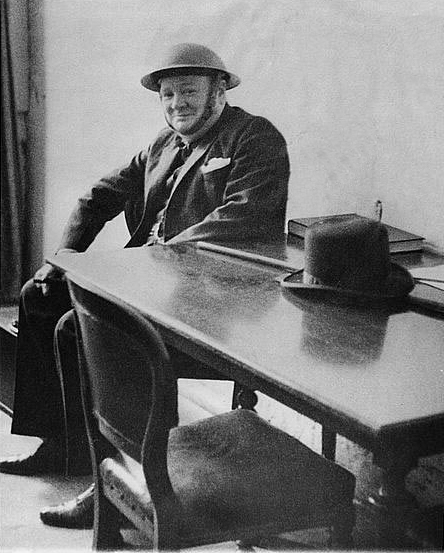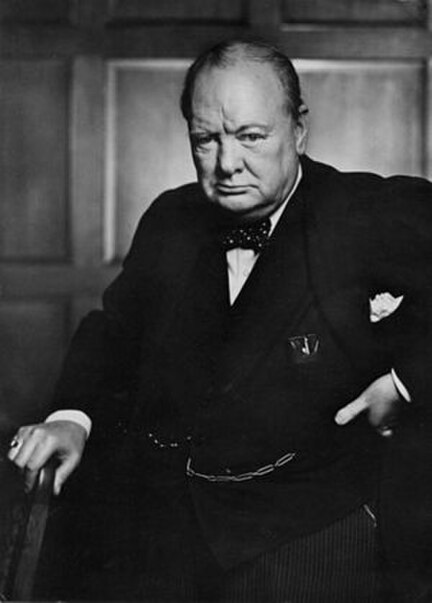 |
| During an air raid. |
Here
is the peroration of one of Churchill's most celebrated speeches,
made in 1940:
“What General Weygand called the Battle of France is over. I expect that the Battle of Britain is about to begin. Upon this battle depends the survival of Christian civilization. Upon it depends our own British life, and the long continuity of our institutions and our Empire. The whole fury and might of the enemy must very soon be turned on us. Hitler knows that he will have to break us in this Island or lose the war. If we can stand up to him, all Europe may be free and the life of the world may move forward into broad, sunlit uplands. But if we fail, then the whole world, including the United States, including all that we have known and cared for, will sink into the abyss of a new Dark Age made more sinister, and perhaps more protracted, by the lights of perverted science. Let us therefore brace ourselves to our duties, and so bear ourselves that, if the British Empire and its Commonwealth last for a thousand years, men will still say, 'This was their finest hour.'”
I
quote it because it makes clear what was understood as the two sides
to the conflict at the time: on one side, the Allied side, “Christian
civilization.” On the Nazi/Fascist side, “perverted science.” I
think this is worth pointing out and remembering, because in recent
years this has been falsified. Many fashionable writers have tried
instead to claim that “Christian civilization,” (viz John Ralston
Saul), or even, absurdly, the Catholic Church (viz Christopher
Hitchens), was responsible for Nazism. But Nazism was openly
anti-Christian, as Churchill notes.
 |
| The Karsh portrait |
Nor
was Fascism, as I have seen claimed, anti-science. No, science, or
rather, scientism, as Churchill says, was at its core: Darwin and the
theory of evolution was obviously and directly appealed to by Hitler
as the essence of human life, and Einstein's Theory of Relativity was
used by Mussolini to claim that all values were culturally relative.
Nazism was not a conservative movement, in any sense, but a
“progressive” creed. It appealed to science for its
justification, and held, like the “progressives” of today, that
science had superceded old moralities.
Those
who do not study history are condemned to relive it. And not as the guys on top.













No comments:
Post a Comment